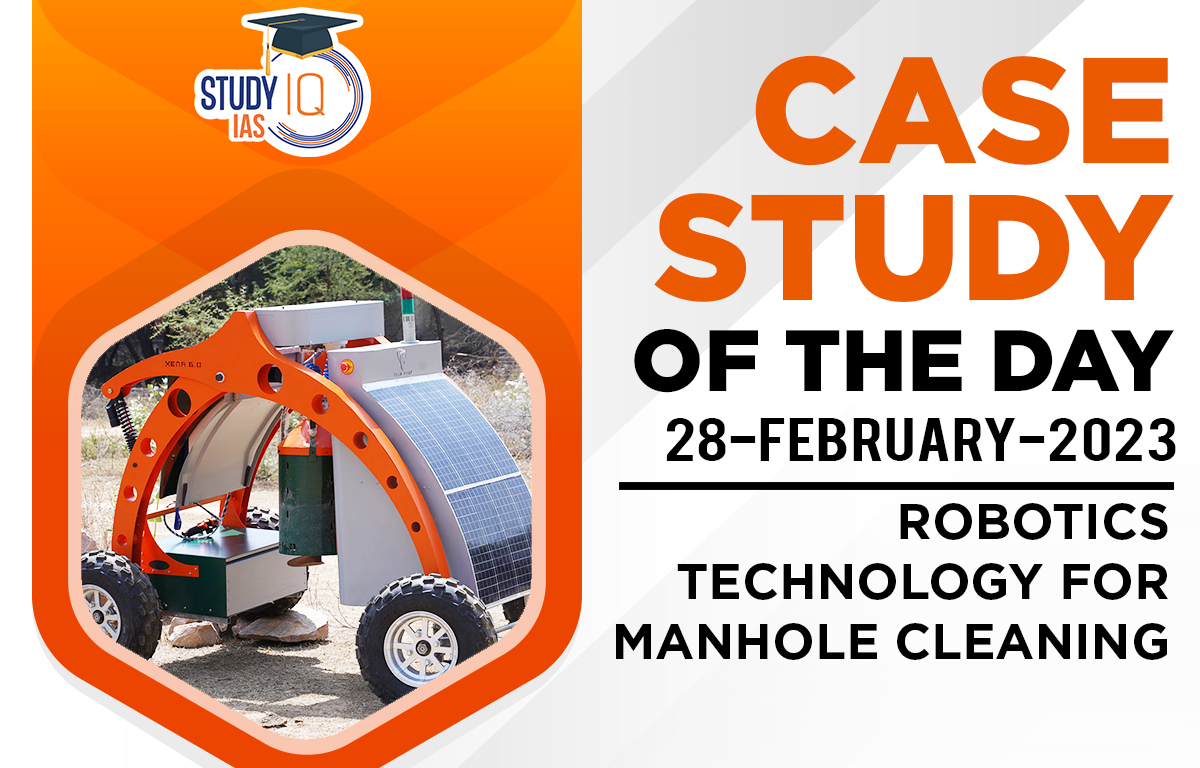Table of Contents
Background: Kerala has become the first state in the country to use robotics technology for cleaning manholes in the town of Guruvayur.
Manual Scavenging
- Manual Scavenging, even though prohibited by ‘Manual scavengers and their rehabilitation Act, 2013’, has resulted in following issues:
- Stigmatisation of lower class, who are compelled to perform these tasks.
- Lack of safety equipment puts the workers under the risk of infections and asphyxiations (deprived of oxygen).
- Lack of empathy among the government, contractors and household members employing manual scavengers, who fail to understand the plight of workers.
About Robotic Manhole Cleaning
- Bandicoot, the robot, was developed by Kerala-based Genrobotics, and is already in use in urban bodies across the country, phasing out the practice of sanitation workers physically entering the manholes.
- The robotic Tron Unit, which is the major component of Bandicoot, enters the manhole and removes sewage using robotic hands, similar to a man’s limbs.
- It has waterproof, HD vision cameras and gas sensors that can identify harmful gases inside the manhole.
- The robot Bandicoot has been inducted under the Guruvayur Sewerage Project, by Kerala Water Authority (KWA), as part of the 100-day action plan of the State Government.
- Impacts of introducing Robotics for Manhole Cleaning:
- It marks a step towards use of technology-driven solutions for addressing social issues.
- Modernisation of the sewerage system will help contain the spread of epidemics and associated health challenges.
- Provides a respite for workers engaged in manhole cleaning, ending their stigmatization.



 Personality Rights in India: Expanding P...
Personality Rights in India: Expanding P...
 Judicial Recognition of Child Traffickin...
Judicial Recognition of Child Traffickin...
 Misrepresentation and Fraud in Digital T...
Misrepresentation and Fraud in Digital T...

























